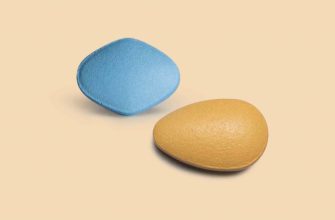Begin by consulting your doctor. They can assess your health and determine the appropriate dosage and usage instructions tailored to your specific needs. Ignoring this crucial step could lead to adverse effects.
Cialis, a phosphodiesterase-5 (PDE5) inhibitor, primarily treats erectile dysfunction (ED) and benign prostatic hyperplasia (BPH). It works by increasing blood flow to the penis, facilitating an erection. Remember, results vary, and factors like diet, stress, and existing medical conditions influence effectiveness.
Dosage typically ranges from 5mg to 20mg daily, or as needed. Never exceed the prescribed dose. Taking Cialis with a high-fat meal might delay absorption. Alcohol consumption can also impact its effectiveness and increase the risk of side effects.
Common side effects include headache, facial flushing, nasal congestion, and indigestion. These usually are mild and temporary. Serious side effects, such as vision changes or hearing loss, are rare but require immediate medical attention. Always report any unusual symptoms to your physician.
For optimal results, maintain a healthy lifestyle. Regular exercise, a balanced diet, and stress management techniques can significantly contribute to overall sexual health and medication efficacy. Discuss any existing medications with your doctor before starting Cialis to avoid potential interactions.
Cialis Usage: A Comprehensive Guide
Always follow your doctor’s instructions. Dosage varies depending on individual needs and health conditions. Typical starting doses range from 10mg to 20mg, taken as needed, at least 30 minutes before sexual activity.
Timing is key. Cialis can remain effective for up to 36 hours, allowing for greater spontaneity compared to other medications. However, this doesn’t mean you should take it daily unless prescribed to do so.
Food and alcohol can affect absorption. While Cialis can be taken with or without food, heavy, fatty meals might slightly delay onset. Limit alcohol consumption, as it can increase the risk of side effects.
Potential side effects include headache, flushing, nasal congestion, and indigestion. These are usually mild and temporary. Serious side effects are rare but require immediate medical attention. Consult your physician if you experience prolonged or severe side effects like vision changes, hearing loss, or chest pain.
Interactions with other medications exist. Inform your doctor about all medications, supplements, and herbal remedies you are currently using. Certain medications can interact negatively with Cialis.
Regular medical checkups are important. Discuss your sexual health with your doctor. They can monitor your progress and adjust treatment if necessary. Open communication is vital for successful management.
This information is for educational purposes only. It does not substitute for professional medical advice. Always consult a healthcare provider before starting any new medication, including Cialis.
Understanding Cialis Dosage and Administration
Always follow your doctor’s instructions. The standard starting dose of Cialis is 10 mg taken as needed, at least 30 minutes before sexual activity.
Dosage Adjustments
Your doctor may adjust your dose based on your response and individual health needs. Lower doses (5 mg) are available, while higher doses (20 mg) may be prescribed, but only if the lower dose proves insufficient. Cialis for daily use comes in 2.5 mg and 5 mg tablets.
Administration
Take Cialis orally with or without food. The presence of food might slightly delay the onset of action, but doesn’t significantly affect the overall effectiveness. Avoid grapefruit juice while taking Cialis, as it can increase blood levels of the medication.
Missed Dose
If you miss a dose of Cialis as needed, take it as soon as you remember, unless it’s close to the time for your next dose. Never take a double dose to make up for a missed one. For daily Cialis, take the next dose at the usual time.
Important Considerations
Alcohol can interact with Cialis, potentially increasing the risk of side effects. Certain medications may also interact with Cialis; inform your doctor about all medications you are currently taking, including over-the-counter drugs and supplements. Consult your doctor before starting or stopping any medication.
Storage
Store Cialis at room temperature, away from moisture and direct sunlight. Keep the medication out of reach of children and pets.
Potential Side Effects and Precautions
Always consult your doctor before starting Cialis. Common side effects include headache, flushing, stuffy or runny nose, and indigestion. These are usually mild and temporary. More serious, though rare, side effects include sudden vision loss, hearing loss, prolonged erection (priapism), and heart attack. Seek immediate medical attention if you experience any of these.
Heart Conditions and Cialis
Cialis can lower blood pressure, so inform your doctor about any heart problems, including angina or high blood pressure. This is particularly important if you’re taking nitrates, as the combination can be dangerous. Your doctor will assess your suitability for Cialis based on your individual health profile.
Other Medications and Interactions
Inform your physician about all medications you are currently taking, including over-the-counter drugs and herbal supplements. Some medications can interact with Cialis, potentially increasing side effects or reducing effectiveness. This includes certain antifungals, antibiotics, and HIV medications. Your doctor can help manage potential drug interactions.
Long-Term Use and Management of Cialis
Consult your doctor regularly for ongoing monitoring, especially if you’re using Cialis long-term. This allows for personalized adjustments based on your health status and response to the medication.
Regular check-ups help identify potential side effects early, facilitating timely intervention. These check-ups should include blood pressure monitoring and discussions about potential drug interactions.
- Schedule appointments every 3-6 months, or as frequently as your physician recommends.
- Maintain an open dialogue with your doctor about any changes in your health or medications.
- Provide a complete list of all medications, supplements, and herbal remedies you use.
Long-term Cialis use necessitates careful attention to dosage. Avoid exceeding the recommended dose, even if you feel it’s ineffective. Higher doses don’t necessarily improve results and increase the risk of side effects.
Proper lifestyle choices complement Cialis’s effects. These include:
- Regular exercise
- A balanced diet
- Weight management
- Stress reduction techniques
- Limiting alcohol consumption
- Quitting smoking
Addressing underlying health conditions, such as heart disease or diabetes, is key to optimizing Cialis’s effectiveness and overall well-being. These conditions often impact erectile function and may require specific management strategies.
Remember, Cialis isn’t a standalone solution. A holistic approach incorporating lifestyle modifications and appropriate medical care provides the best outcome for long-term management.






